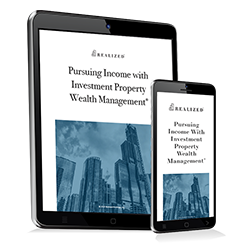
While many corporations have eliminated traditional pensions, most continue to offer employees the opportunity to save for retirement through defined-contribution plans like 401(k) and 403(b) plans. Those numerical designations refer to the Internal Revenue Code sections that authorize the plans and have become shorthand for employee retirement savings vehicles. The question of “qualified” versus “non-qualified” refers to compliance with the 1974 Employee Retirement Income Security Act (ERISA).
A qualified plan meets the stipulations of ERISA, specifically regarding the tax-deferred contributions made by employees. A non-qualified plan is funded with after-tax dollars, and as a result, neither employees nor employers receive a deduction for their contributions. Other criteria that impact qualification include coverage distribution among employees, participation, vesting, and nondiscrimination (meaning that higher-paid employees cannot receive more generous benefits than lower-paid employees.)
Employee Contributions
In a qualified, defined contribution plan--most commonly, a 401(k) or a 403(b)—the employee contributes a percentage of their total income each year. The employee's contributions and any earnings in the account are not taxed until the employee starts to make withdrawals (ideally, after retirement.) Many employers match a percentage of that employee contribution, but they are not obligated to do so. The IRS limits both employee and total contributions, with additional allowances for older employees to catch up with higher amounts.
Generally, the employee has some choice in how to invest the funds. Often, the 401(k) or 403(b) is managed by a financial services firm or investment advisor. There may be mutual funds with particular industry orientations or others designed to maximize returns for a set period. Mutual funds may include index funds, large and small-cap options, foreign equities, real estate, and bonds. The fund manager will ordinarily report past performance regularly.
Real Estate Options
For an employee contributing to a qualified retirement plan and hoping to invest in real estate, the options may be limited to a fund aligned with one or more real estate sectors or which owns shares in REITs. If you seek to make additional real estate investments with retirement funds, you may consider opening an IRA or Roth IRA. Consult your tax advisor first, because if you have a 401(k) through an employer, there are some limits to your ability to fund an IRA. But the IRA, if feasible for you to fund, may provide you with a more malleable vehicle for real estate-focused investment.
Something else for you as an investor interested in real estate to consider is whether you can use other funds for the real estate investments while using your tax-deferred retirement contributions to maintain diversity. Simply put, consider directing the qualified plan contributions to something other than real estate while using your other investments in a way that still seeks to manage tax exposure in the real estate area. For example, if your goal is direct real estate investment, you may use taxed funds for the initial outlay into real estate assets.
Suppose you are preparing to sell the initial (or subsequent) property. In that case, you can work to defer the recognition of the gain and the accompanying tax by using a Section 1031 Exchange to accomplish the transaction. As with the profits growing tax-deferred in your qualified retirement plan, using the 1031 exchange process can allow you to increase your investment in real estate without surrendering a portion of your gains to a capital gains tax.



